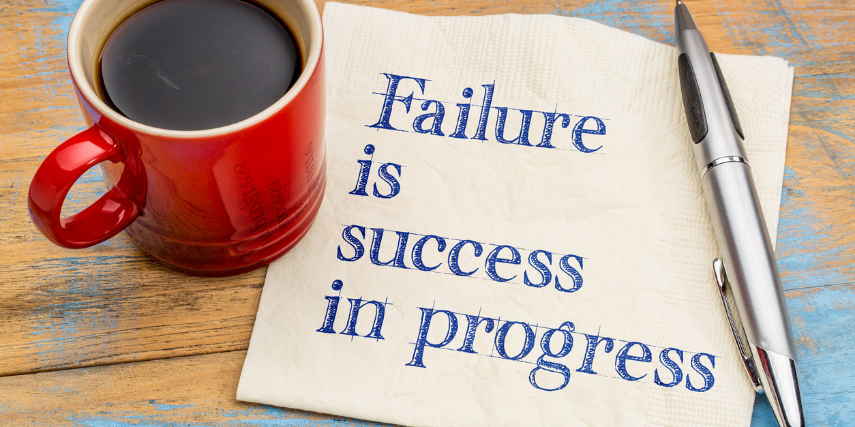Everyone has a story.
It’s true of people, but it’s also true of brands. Your story is one of your most powerful tools for connecting with your audience.
You may think that your business is too practical to have a compelling story. Maybe you are a title company, a tax attorney or a medical supplies distributor, offering a product people need but never exactly want.
These are the companies for whom a story is especially powerful. You take something that might be thought of as a dry, lifeless topic and you share why your company is unique and exciting.
Maybe it’s because of a cause that your company supports or a passion for bringing security and safety to people in an industry where everyone else is all about the bottom line. Your story is exciting and compelling, or you wouldn’t be in business. Let’s talk about how to tell it.

The Bones
For any good story, whether you’re crafting your brand story, trying to keep a dinner party engaging, or entertaining a group, there’s a pattern of how an effective tale progresses. It goes like this:
- The challenge: you saw a problem, looked around and saw that nobody else was in a position to fix it. You realized you had exactly the skills, availability, drive to do go after it.
- The epic battle: the obstacles, the late nights, the lack of money and time. Maybe you asked everyone you knew to invest and not one person supported you. Maybe your team was falling asleep at desks trying to get ready for your launch. It’s the hard moments, the setbacks, the almost-failures.
- The victory: you emerge as a success, a company that overcame the odds or survived its trials to become who you are today.
When your story follows this arc, it becomes easier for you to filter out the side stories, the rabbit trails that can cause you to lose the interest of your audience. Here are some practical suggestions that will help you develop a compelling story:
Tell the Story in Your Voice: No matter what your tone is for your communications, you’re at risk of becoming a sentimental sap in your brand story. Don’t let that happen to you if you’re a funny, snarky or super-serious brand. If you’re an edgy company with a bit of a bite to your tone, make sure that’s how your story reads, too.
Let Your Less-Than-Perfect Moments Shine: You didn’t have it all figured out back then, and your audience will love hearing it.
Your Failures Get Their Spotlight, Too: Those moments when you were on a great track and then nearly sank the whole business? Yep, they’re working for you now.

Use First Person Voice: Talk to your audience as if it’s just you and that person, sharing a conversation over coffee. Besides, there is not a person on the planet who can talk about themselves in third person and pull it off.
Use Precision in Your Focus: In other words, be succinct. Not short; nobody wants a good story to end, but you do need to include the parts that are relevant and share who you are.
Don’t Let Facts Ruin a Good Story: One pitfall storytellers fall into is being distracted by the facts. You don’t want to represent your brand’s journey falsely, but you don’t have to insert every twist and turn into the tale, especially if they’re boring. For instance, your back-and-forth with a bank to get a small business loan may have stood out to you as a big struggle, but telling about each conversation you had or the documents you had to fill out would make your audience fall asleep.
Highlighting who you are as a company is more important than the actual events. You may leave out parts that were absolutely important at the time, but that don’t move your audience or express who you are now.
Focus on the Elements That Express Who You Are: You’re going to highlight the parts of your story that most effectively illustrate who you are as a company. As you think over your journey, there will probably be moments that turned out to be pivotal that didn’t seem that way at the time, or words of wisdom that have stuck with you that were delivered without any ceremony.
Is There a Better Way to Tell It? Sometimes an analogy is more effective than a retelling of events, or there’s a particular situation that occurred that was representative of your company as a whole.
What Storytelling Isn’t
Your story is not just a list of facts about when you started and how many years you’ve been in business. It’s not the different versions of your product.
Your story is a way to express who you are as a brand, your values, identity and culture.
Storytelling also isn’t letting other people tell who you are. Think about Facebook, a company that has never been effective at telling its story. Instead, other people told it, in the form of a major motion picture. And their lack of story hasn’t helped when privacy issues and political turmoil put them in the hot seat.
You might say, sure, but Facebook isn’t exactly struggling. That’s true, but when you think about what the story is that the public and the media have been telling about Facebook, it’s probably not what you want for your company.
Your story is what creates loyalty and attracts the kinds of customers who see themselves somehow in your brand. It breeds the kinds of relationships that make customers stick with you, no matter what new tricks your competitor is trying.

We want to be a part of your story. At SJC Marketing, we love hearing about your business and then helping you shape it into a way to connect with your audience. Contact us, and let’s tell some stories over coffee.


